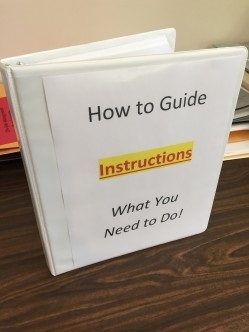Over the course of our lives, we encounter difficult times. We have different paths, and some of us seem to struggle more than others. However, we all have something in common when it comes to those trying times. It’s helpful to have good friends to invite into our lives, to lean on as we experience hardship. I’m very thankful to have had some of those at just the right times.
It can be difficult to identify those special ones who can be a conduit for God’s love and comfort right when we need it. Thankfully, there’s several characteristics to look for when determining who we can turn to in a time of need.
Relationship is the priority.
For a person to offer us what we need in a crisis, their priority must be to engage an authentic relationship with us. If they do not care about getting to know us for who we really are, the interactions with them will be surface at best. No real healing can take place in that environment, because the real stuff doesn’t come up.
No fixing!
If pursuing and enjoying a relationship is the priority, fixing each other won’t be. This one sounds counter-intuitive when we are seeking help in a time of need. However, assuming someone else can actually fix us, or teach us how to fix ourselves, is dangerous. The harder we try to be fixed, the more depressed we get as we fail at it. When we lean on someone whose main goal is to fix us, they will be eager to tell us what to do. They will also get frustrated or lose interest when they see us fail to adhere to their directions. That kind of experience adds to the hopeless feelings we may already be struggling with.
We do not find what we need by striving and working harder to do it by human effort. However, when we are with someone who offers us a safe place to open up, we are finally able to lay down the self-effort that has failed us, take off masks that we may have been wearing a long while, and allow our Father, God, to engage those broken areas in our hearts.
Trust is essential.
We tend not to share our true selves with someone who is untrustworthy, and if we do, we eventually get hurt. It takes time to see whether or not someone is trustworthy. As we take the risk to open up, bit by bit, we will see how the other person handles it. A trustworthy person will treat our experiences and disclosures with the upmost respect. They will seek to understand and comfort us when we need it.
Nothing remains hidden.
The masks must come off in a healing relationship. And the masks that come off should not be from one side of the relationships only. If the one we are sharing ourselves with is the right person for us to turn to, he or she will also freely share his or her own life experiences, feelings, and failures. That last one might be the most important. A helpful, loving friend is not afraid to reveal his or her imperfections. They can openly admit they are wrong.
We’re viewed as a Saint who sometimes fails.
The most helpful of friends will be those that seek to know us for who we really are. Once they see behind all the junk that may be in our lives, they focus on our true identity. God does this. Once He changes us by adopting us as His children, He no longer views us as sinners. Through Jesus, He views us as saints (Ephesians 1). Good friends follow God’s lead and view us as someone who fails, but they do not identify us by those failures. Instead, they remind us of who we really are, and argue against anything that says anything different.
Thank you for reading my blog today! If you would like to receive email notifications about new blog posts and other announcements, please subscribe below:











